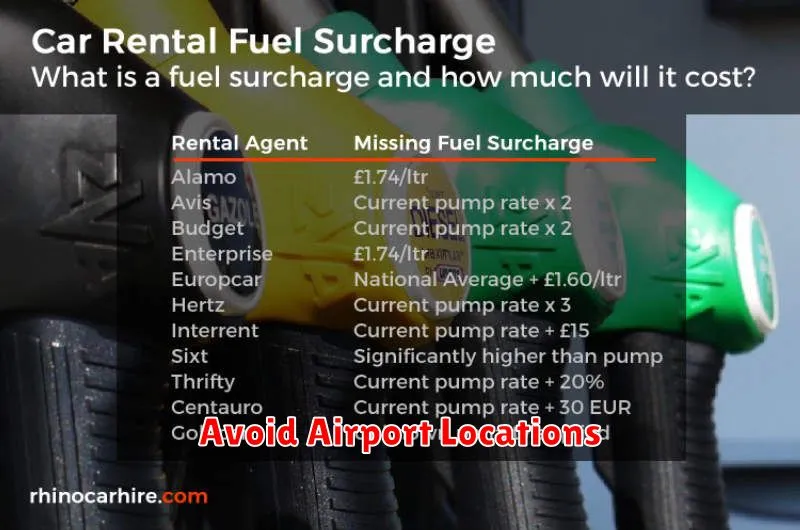Planning an extended trip and need a vehicle? Long-term car rentals can offer a flexible and convenient solution, but the costs can quickly add up. This article explores effective strategies to save money on long-term car rentals, ensuring you get the best possible value for your extended journey. Learn how to navigate the intricacies of rental agreements, leverage discounts, and choose the right vehicle to minimize your expenses while enjoying the freedom of the open road.
From understanding the nuances of weekly and monthly car rental rates to comparing deals from various rental companies, we’ll provide valuable insights to help you secure the most affordable long-term car rental. Discover how to negotiate effectively, utilize discount codes, and avoid hidden fees. By following these tips, you can unlock substantial savings and make your extended travel budget stretch further.
Why Long-Term Rentals Can Be Cheaper
Long-term car rentals often come with lower daily or weekly rates compared to short-term rentals. This is because rental companies benefit from the guaranteed income and reduced administrative overhead associated with longer bookings. They don’t have to worry about the car sitting idle between rentals, and the processing involved is less frequent.
Negotiating power also plays a role. When you commit to a longer rental period, you’re in a better position to negotiate a more favorable rate. Rental companies are more willing to offer discounts to secure a longer booking.
Additionally, some long-term rentals may offer inclusive packages that bundle services like insurance or roadside assistance, potentially leading to overall savings compared to purchasing these services separately for a shorter rental.
Book Monthly, Not Weekly
One of the most effective strategies for reducing long-term car rental costs is to book by the month instead of by the week. While it might seem counterintuitive, weekly rates often add up to a significantly higher total cost over an extended period.
Monthly rates generally offer a lower per-day price. Rental companies incentivize longer bookings, recognizing the guaranteed revenue. This translates to substantial savings for you, the renter, especially when renting for several weeks or months.
Consider this simplified example:
| Rental Period | Weekly Rate | Monthly Rate | Total Cost (Weekly) | Total Cost (Monthly) |
|---|---|---|---|---|
| 4 Weeks | $200 | $700 | $800 | $700 |
As demonstrated, even a small difference in the weekly and monthly rates can result in considerable savings over time. Therefore, always inquire about monthly rates when planning a long-term rental.
Use Loyalty Programs

Loyalty programs offered by car rental companies can provide significant savings for long-term rentals. These programs often offer discounted rates, free upgrades, and bonus points that can be redeemed for future rentals or other rewards.
Joining these programs is typically free and can be done online or at the rental counter. Check the specific benefits offered by each company’s program as they can vary significantly. Some programs may waive young driver fees or offer expedited service.
Consider consolidating your rentals with one company to maximize your rewards. Accumulating points or achieving higher membership tiers can unlock even greater savings and perks.
Avoid Airport Locations

One of the most impactful ways to save money on a long-term car rental is to avoid renting directly from agencies located at airports. Airport locations often include additional fees and surcharges, such as airport concession fees and facility charges, that significantly inflate the overall rental cost. These added expenses can quickly accumulate over a longer rental period.
Consider renting from an off-airport location. These locations typically offer lower base rates due to lower operating costs. While transportation to and from the airport may require additional planning, the potential savings can be substantial, especially for extended rentals.
If an off-airport location is inconvenient, compare prices between on-airport and nearby off-airport agencies before making a decision. A short taxi or rideshare trip to a nearby location could result in considerable savings over the length of your rental.
Negotiate Directly with Rental Agency
One of the most effective ways to secure a lower price on a long-term car rental is to negotiate directly with the rental agency. Bypass third-party booking sites and contact the rental location directly, preferably by phone. This allows for a more personalized discussion and greater flexibility in pricing.
Be prepared to clearly state your needs, including the type of vehicle, rental duration, and any additional requirements. Long-term rentals often come with discounted rates, so emphasize the extended rental period.
Don’t hesitate to ask about available discounts, such as corporate rates, AAA memberships, or special promotions. Being proactive and inquiring about potential savings can significantly impact the overall cost.
Compare quotes from different rental agencies and locations. This provides leverage during negotiations, as you can demonstrate your awareness of competing prices. Be polite but firm in your negotiations, and be prepared to walk away if a satisfactory agreement cannot be reached.
Understand Long-Term Policies
Long-term car rentals typically span several weeks or months, and they come with specific policies that differ from standard rentals. Understanding these policies is crucial for a cost-effective and hassle-free experience.
Rental Duration and Discounts: Most companies define long-term rentals as those exceeding a certain period, often 28 days. Inquiries about specific durations for discounts are essential.
Mileage Limits: Pay attention to mileage allowances. Some long-term agreements offer unlimited mileage, while others impose restrictions. Exceeding these limits can incur extra charges. Clarify these limits upfront.
Insurance Coverage: Your personal car insurance might not extend fully to long-term rentals. Verify your existing policy and consider supplemental insurance offered by the rental company.
Payment Schedules: Long-term rentals often involve different payment structures than short-term ones. Understand billing cycles, due dates, and potential deposit requirements.
Watch Out for Mileage Limits
Mileage limits are a crucial factor to consider when opting for a long-term car rental. Many rental companies impose daily or monthly mileage caps. Exceeding these limits often results in additional fees, which can significantly impact your overall rental cost.
Before committing to a rental, carefully review the mileage allowance included in your contract. Estimate your anticipated mileage based on your travel plans. If your projected mileage surpasses the provided limit, explore options with unlimited mileage or consider whether alternative transportation methods might be more cost-effective.
Different rental companies have varying mileage policies. Some offer tiered packages with different mileage allowances, while others provide unlimited mileage at a premium price. Comparing these options and calculating the potential overage charges is essential to making an informed decision.

